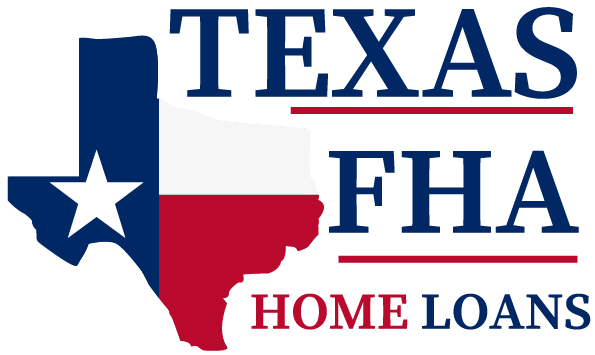- Attractive Interest Rates
- Flexible Qualifications
- Low Down Payments
Credit, Income, and Assets constitute a mortgage loan; all three must be present.
FHA loan is the easiest loan to qualify for. With a minimal down payment requirement of 3.5% and the down payment can be a gift from family members, it allows homebuyers to realize their dream of homeownership. However, borrowers must meet specific eligibility requirements to qualify for an FHA-insured loan. FHA loan requirements are straightforward and must be met by all applicants.
FHA loans are the best option for people who filed for bankruptcy or had a prior foreclosure. They are popular among first-time homebuyers who have not saved up significant funds to purchase a home.
WHY HOMEBUYERS ARE CHOOSING US?
CLOSE ON TIME
GREAT RATES & LOW FEES
EXCEPTIONAL CUSTOMER SERVICE
FHA Loan Requirements For 2024
FHA’s general guideline regarding a borrower’s credit score is a 580 mid-FICO score to qualify for an FHA mortgage loan. This guideline varies from one lender to another. Some big commercial banks require a minimum of 620, others all the way to 640 before they can extend an FHA loan. The FHA guideline of 580 is a requirement for the loan to be eligible for FHA insurance. Since FHA only insures the loan against future borrowers’ default and doesn’t originate the loan themselves, they cannot force a mortgage lender to extend an FHA loan to borrowers that fall below their set criteria. This is what’s referred to as an “overlay” by lenders.
Borrowers with a FICO score below 580 may still qualify for an FHA loan provided they come up with a minimum of 10% down payment. Certain restrictions will apply to these borrowers, but it is still more lenient than conventional loans and other types of mortgage programs.
FHA has no set minimum income requirement to qualify for an FHA-insured loan. However, they require the buyer to make sure they can afford the mortgage they are applying for. This includes documenting a steady income for at least two years.
A borrower’s debt-to-income ratio is calculated based on income versus monthly debts. To calculate your DTI ratio, divide your monthly bills by your gross monthly income (wages before taxes). The result is the percentage of your debt-to-income. The lower the percentage, the less risky a borrower is, and vice-versa. The standard DTI ratio of an FHA loan is 31/43. The first ratio is the proposed monthly housing expense should not exceed 31% of the borrower’s gross monthly income. The second ratio of 43% is all the monthly debts, plus the proposed housing expense should not exceed 43% of the gross monthly income.
We can extend FHA loans to borrowers with a DTI ratio as high as 55% with an Automated Underwriting System (AUS) approval. We can offer an FHA loan with a DTI as high as 57% with compensating factors in certain circumstances.
- The greater of 1 percent of the outstanding balance on loan, or the monthly payment reported on the credit report;
- The actual documented payment as long as the payment will fully amortize the loan over its term. To put it into perspective, say a borrower has $80,000 in student loans on an income-based repayment (IBR), and the credit report shows a monthly payment of $140. Under the new rule, the lender must use 1% of the balance ($80k), which is $800 instead of the $140 shown on the credit report.
For all case numbers assigned on or after August 16, 2021, the new rule for outstanding student loans will be as follows:
- use the payment amount reported on the credit report or the actual documented payment, or
- use 0.5 percent of the outstanding balance if the monthly payment is showing zero (0) on the credit report.
FHA-insured loans require a savings requirement or what is referred to as “Reserves.” The borrower’s middle FICO score dictates the total monthly reserve requirement. A Reserve is the total amount of savings the borrower has in liquid assets after the down payment is used to purchase the home. One month reserve equals one full monthly mortgage payment. If the borrower’s proposed monthly mortgage payment, the principal, interest, taxes, and insurance (PITI) are $1,000, one month in reserve is $1,000, just the same. The general rule of 3 months in reserve is a good rule of thumb but not required in all cases. The three (3) months or more in reserve rule will only apply if the borrower purchases a 3 – 4 unit property or has a middle FICO score of less than 620.
All FHA loans require a down payment. An FHA loan’s minimum down payment requirement is 3.5 percent of the sales price. This applies to borrowers with a middle FICO score of 580 and above. Those with a credit score under 580 and under, all the way down to 500, may still qualify for an FHA loan but must come up with a minimum of 10 percent down.
Down payment can come from the borrower’s 401(k) account. If the home buyer borrows against their 401(k), it will not count as the borrower’s monthly payment obligations for underwriting purposes.
Appraisal Guideline

How does an appraisal of an FHA loan differ from a conventional loan?
For additional information on savings or sourcing, please contact our FHA Home Loan Specialists at 800-854-4142.
FHA Loans Help Make Home Ownership
Possible For a Wider Range of People.

An FHA Loan Specialist Ready To Help You
Our FHA Loan Specialists are always available to help you and answer any questions. You may contact a dedicated FHA Loan Specialist through our website or by calling us directly. You may also chat with us to get a quick answer to your questions.

We Make The FHA Loan Process Quick & Easy
Lenders often times will steer their clients away from an FHA loan due to their inexperience with the program. FHA Loans are a great source of funding for our clients. We share our knowledge and experience with FHA loans, making it easier for borrowers.

FHA Approved Lender
The Federal Housing Administration requires lenders offering FHA loans to go through an extensive approval process. We are FHA-approved and designated as a “Full Eagle” FHA mortgage lender offering FHA-insured home loans in Texas.


